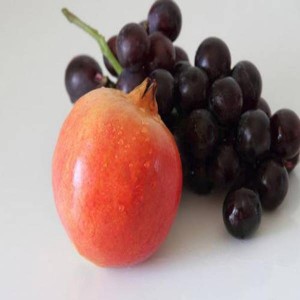Resveratrol——Give maximum protection to health
Resveratrol has special biological activity. It is a non flavonoid polyphenol organic compound. It is an antitoxin produced by many plants when stimulated. The chemical formula is c14h12o3. It can be synthesized in grape leaves and grape skins. It is a bioactive component in wine and grape juice. It is easily absorbed by oral administration and excreted through urine and feces after metabolism. In vitro and animal experiments show that resveratrol has antioxidant, anti-inflammatory, anticancer and cardiovascular protective effects.
Resveratrol can effectively prevent cardiovascular diseases. Epidemiological studies have found that the French paradox (Frenchparadox) phenomenon is that the French consume large amounts of fat everyday, but the incidence rate and mortality rate of cardiovascular diseases are significantly lower than those of other European countries. They may be related to their daily consumption of wine, and resveratrol may be the main protective factor. Studies have shown that resveratrol can regulate the level of cholesterol in the blood by binding with estrogen receptors in the human body, inhibit platelet formation and blood clot adhesion to the blood vessel wall, so as to inhibit and reduce the occurrence and development of cardiovascular disease and reduce the risk of cardiovascular disease.
Resveratrol can resist aging. Howitz et al found that resveratrol can be used as the strongest activator of silencing information factors, simulate the anti-aging response of calorie restriction (CR), and participate in the regulation of the average life cycle of organic organisms. Cr is a strong inducer of SIRT1, which can increase the expression of SIRT1 in brain, heart, intestine, kidney, muscle, fat and other organs. CR can cause physiological changes of delaying aging and prolonging life, the most significant of which can be prolonged by 50%.
Resveratrol has a significant inhibitory effect on hepatocellular carcinoma, breast cancer, colon cancer, gastric cancer, leukemia and other tumor cells. Some scholars have confirmed that resveratrol has obvious inhibitory effect on melanoma cells by MTT method and flow cytometry. It has been reported that resveratrol can enhance cancer radiotherapy, play the effect of “1 + 1 > 2″ and effectively inhibit the role of cancer stem cells. But so far, researchers have not reached a consensus on the mechanism of resveratrol due to the complexity of its antitumor mechanism.

